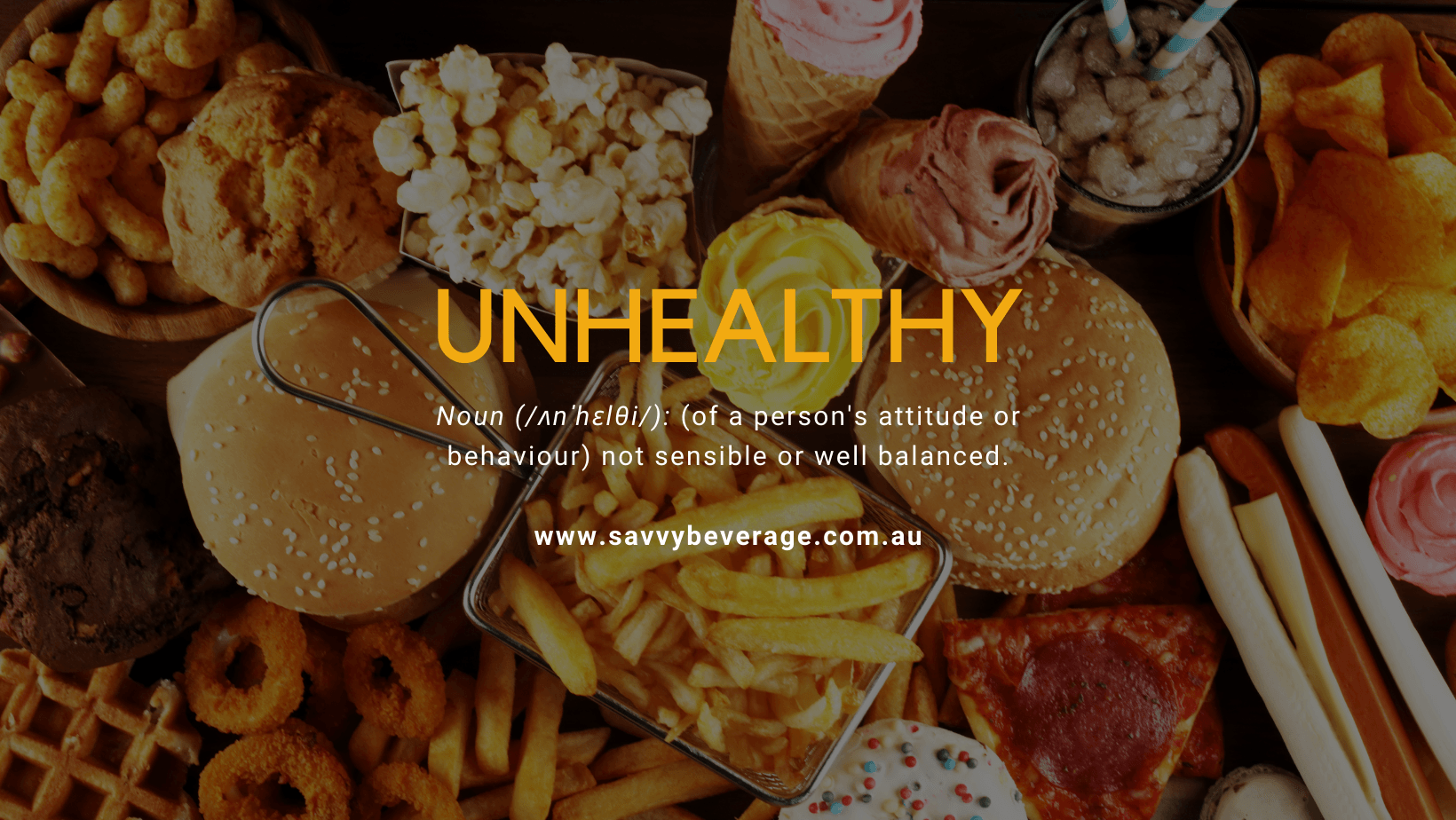
The Worst Foods for Your Brain

|
Article at a glance |
|
The most vital organ in your body is your brain. It keeps your heart beating, lungs breathing, and all of your body's functions running. That's why eating a balanced diet is so important for keeping your brain in top shape.
Some foods have some pretty severe issues for your physical and mental health when consumed a lot of the time. It is often true what is good for the body is good for the brain, so this can be a good indicator of what to eat most of the time.
Moderation is key - make sure most of your diet is healthy and nutritious, and understand the issues of constantly eating foods that are bad for the brain and the body!
Following a diet rich in nutritious, fresh whole foods is one of the finest things you can do for your brain.
However, just like you would not put low-quality fuel in your car and expect it to run at its best... these foods will slow your brain down... so let's learn what to avoid and why!
Refined Carbs

Sorry guys, this one is going to be targeting white bread, pasta, pies, sausage rolls and a lot more everyday foods consumed by Aussies.
Sugars and highly processed grains, such as white flour, are examples of refined carbs. The glycemic index of these carbohydrates is often high (GI). This means they are quickly digested by your body, resulting in an increase in blood sugar and insulin levels.
Furthermore, when consumed in big numbers, these meals have a high glycemic index (GL). The GL indicates how much a food elevates blood sugar levels in relation to the serving size.
High-GI and high-GL foods have been shown to decrease brain function.
A single meal with a high glycemic load has been found to impair memory in both children and adults, according to research. [7]
In another study of healthy university students, it was discovered that individuals who consumed more fat and refined sugar had lower memory retainment, and slower learning ability.
Inflammation of the hippocampus, a region of the brain that impacts memory and reactivity to hunger and fullness cues, might be to blame for the memory effect. [7]
Inflammation has been identified as a risk factor for degenerative brain disorders such as Alzheimer's and dementia. [8]
One research, for example, looked at older persons who consumed more than 58 percent of their daily calories as carbs. They had nearly double the chance of moderate mental impairment and dementia, according to the study. [9]
Carbohydrates may also affect the brain in different ways.
And another study indicated that children aged six to seven who ate high-refined-carbohydrate diets had poorer nonverbal cognitive scores.
Vegetables, fruits, legumes, and whole grains are examples of low-GI carbohydrates. This database may be used to determine the GI and GL of common foods.
Click here for a healthy snacks fact sheet made by NDSS.
Excess Refined Sugars

Soda, sports drinks, fruit juice, iced coffees, muffins, cookies and lollies are some examples of the excess sugar we consume every day.
Excess sugar not only adds inches to your waistline and increase your risk of type 2 diabetes and heart disease, but it also has a harmful impact on your brain, your energy and your mood. [1]
Excess sugar consumption raises the chance of acquiring type 2 diabetes, which has been linked to an increased risk of Alzheimer's disease. [2]
Furthermore, even in persons who do not have diabetes, greater blood sugar levels can raise the risk of dementia. [3]
High-fructose corn syrup (HFCS), which contains 55 percent fructose and 45 percent glucose, is a key ingredient in many sugary drinks and snacks. [4]
Obesity, high blood pressure, high blood lipids, diabetes, and vascular dysfunction can all be caused by high fructose consumption. These characteristics of metabolic syndrome may raise the long-term risk of dementia development. [5]
High fructose consumption has been linked to insulin resistance in the brain, as well as decreased brain function, memory, learning, and neuron development in animals. [5]
A high-sugar diet increased brain inflammation and decreased memory in rats, according to one research. [5]
Furthermore, animals fed a diet containing 11 percent HFCS fared worse than rats on a diet containing 11 percent normal sugar.
In another study [6], rats on a high-fructose diet acquired more weight, had poorer blood sugar management, and were more likely to develop metabolic diseases and cognitive problems. While further research in humans is needed, the findings show that a high fructose consumption from sugary drinks may have deleterious effects on the brain in addition to the effects of sugar.
Where possible try to avoid excess sugar and opt for sugar-free option not just for your body, but also for your mind.
Foods High in Trans Fats

Trans fats are an unsaturated lipid that has been linked to a decline in brain function.
While trans fats are found naturally in animal products such as meat and dairy, they are not a significant health risk. The problem is industrially generated trans fats, commonly known as hydrogenated vegetable oils.
Margarine, icing, snack foods, ready-made cakes, and pre-packaged muffins & cookies all include artificial trans fats.
People who ingest more trans fats have an increased risk of Alzheimer's disease, worse memory, reduced brain capacity, and cognitive decline, according to studies. [10]
However, some research [11] has revealed no link between trans-fat consumption and brain health. Trans fats, on the other hand, should be avoided. They have a deleterious impact on a variety of different health issues, such as heart health and inflammation.
Saturated fat research [10] is contradictory. Three observational studies indicated a link between saturated fat consumption and the risk of Alzheimer's disease, whereas a fourth research found the exact reverse.
One explanation might be that a subgroup of the test populations had a genetic predisposition to the condition, which is caused by the ApoE4 gene. However, additional study [10] on this subject is necessary.
A study [12] of 38 women revealed that individuals who ate more saturated fat than unsaturated fat did worse on memory and recognition tests. As a result, it's possible that relative fat ratios in the diet, rather than the kind of fat itself, have a role.
Diets high in omega-3 fatty acids, for example, have been shown to protect against cognitive deterioration. Omega-3 fatty acids boost the production of anti-inflammatory molecules in the brain, which can protect the brain, especially in elderly people. [13]
Eating foods like fish, chia seeds, flax seeds, and walnuts can help you get more omega-3 fats in your diet.

To wrap it up...
Your nutrition has a significant influence on your mental health as well as your physical health. Inflammatory eating patterns heavy in sugar, refined carbohydrates, unhealthy fats, and processed foods can cause all sorts of problems for your brain.
Food also contains a number of additional compounds that are harmful to your brain. When eaten in high amounts, alcohol may cause severe brain damage, whereas mercury and certain other heavy metals present in some foods can be neurotoxic and harm growing brains.
Moderation is key - make sure most of your diet is healthy and nutritious, and understand the issues of constantly eating foods that are bad for the brain and the body!
Following a diet rich in nutritious, fresh whole foods is one of the finest things you can do for your brain.
References:
[2] High-sugar diets, type 2 diabetes and Alzheimer's disease
[3] Glucose Levels and Risk of Dementia
[5] Increased Fructose Intake as a Risk Factor For Dementia
[8] Dietary pattern, inflammation and cognitive decline: The Whitehall II prospective cohort study
[9] Relative intake of macronutrients impacts risk of mild cognitive impairment or dementia
[10] Saturated and trans fats and dementia: a systematic review
[11] Monounsaturated, trans, and saturated Fatty acids and cognitive decline in women
[12] Habitual fat intake predicts memory function in younger women
[13] The role for dietary omega-3 fatty acids supplementation in older adults







